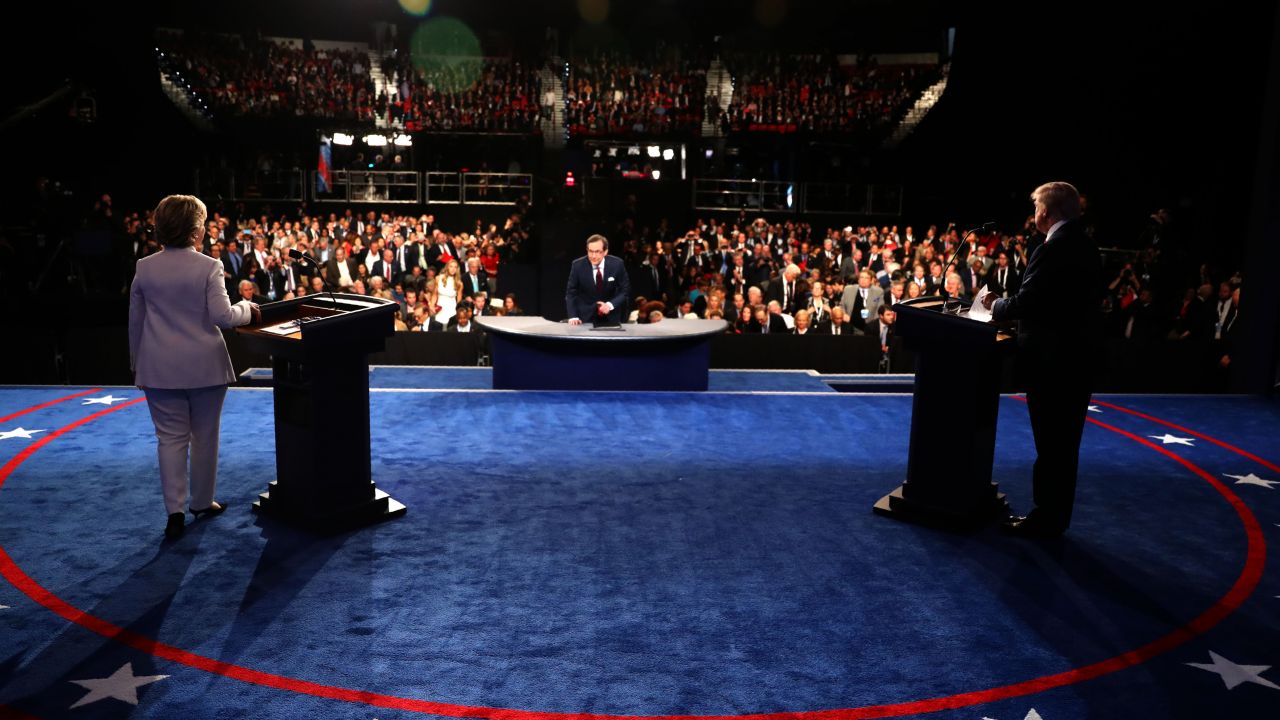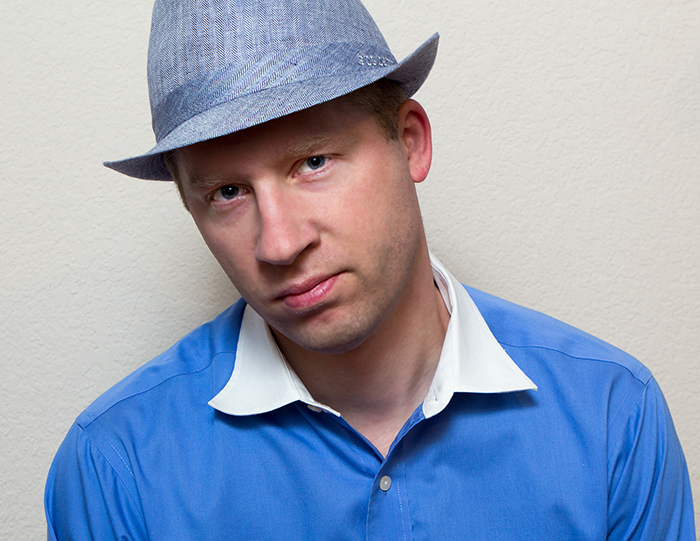
Democratic nominee Hillary Clinton and Republican nominee Donald Trump saluted the audience at the end of the final presidential debate. But will voters salute back? (Photo by Joe Raedle/AFP/Getty Images)
Despite a promising start, the third and mercifully the final debate ended ignominiously, not just for Donald Trump, but also for the republic. In what can only be called a historically unprecedented moment, the GOP nominee for president stunned the nation by refusing to say if he’d support the outcome of the election. “I will tell you at the time,” Trump said. “I’ll keep you in suspense, okay?”
Trump’s Celebrity Apprentice-like answer is dominating the headlines and discussions of his debate performance. Sadly, it proved to be one more outrage in a series of debates that have moved about as far from the Lincoln-Douglas ideal as is possible.
Trump initially spoke to conservatives, promising he’d nominate strongly pro-life justices who would vigorously defend the Second Amendment. When Clinton vowed to defend late-term abortion, Trump repeatedly referred to procedures that “rip the baby out of the womb.”
In the first of several such episodes, Trump failed to understand the details of the issues at the hand. From partial-birth abortion to Syrian refugees, he increasingly peddled fictions and half-truths as the debate went on.
And he denied past statements for which video evidence is readily available.
During a row over nuclear weapons, Clinton referred to comments Trump previously made about allowing countries like Japan to arm themselves with nuclear weapons. “I didn’t say nuclear weapons,” he insisted. Yet Trump explicitly did support allowing US allies to develop nuclear weapons, and he said it during an interview with moderator Chris Wallace on Fox News in April.
Faced with a chance to correct the record, Wallace simply moved on to the next issue.
He did, however, confront Clinton over statements revealed by Wikileaks that she made about her “dream of a hemispheric common market, with open trade and open borders…”
Trump used this as a chance to attack Clinton. “We have no country if we have no border,” Trump said. “Hillary wants amnesty.” Both Wallace and Trump failed to mention her full remarks, which also included the phrase “some time in the future with energy that is as green and sustainable as we can get it.”
Any discussion of sustainability and the environment failed to materialize. Wallace neglected to ask either candidate a single question about climate change, despite the fact that Gavin Schmidt, director of Nasa’s Goddard Institute for Space Studies, is all but certain that 2016 will be the warmest year in recorded history. This could easily be remembered as one of the low points of this year’s election.
The economy received more time, but larger questions went unanswered.
Clinton promised the “biggest jobs program since World War II.” This included a platform of what she called “middle-out” growth. Her plans also include a raise in the minimum wage and debt-free public college for students from families making less than $125,000.
It remained less clear what would happen to the millions already burdened by heavy student loan debt. Still, the influence of Bernie Sanders could be readily heard in many of Clinton’s statements, and she mentioned him by name. Nevertheless, Sanders’ key issue — inequality — received scant attention.
For his part, Trump gave rambling answers that included his desire to enact massive tax cuts for individuals and businesses, which Clinton referred to as “trickle-down economics on steroids.” He had more success pointing out the low rates of GDP growth under President Barack Obama, but once again, his absurd and vague promises to increase growth to 4, 5 or even 6 percent fell flat.
By the time they arrived at foreign policy, it seemed that even Wallace was flummoxed by some of Trump’s answers, especially on the situation in Aleppo and Syria. After Trump referred to “ISIS-aligned” refugees as potentially “one of the great Trojan horses,” the debate seemed to hit rock bottom.
Much like the last two debates, Trump’s often-outrageous comments and asides derailed the night’s proceedings, making more than a rudimentary critique of Clinton’s positions all but impossible.
Yet it is Trump’s refusal to recognize the outcome of November’s election as legitimate that it is the real issue at hand now. It was a depressing dénouement to the last presidential debate and a final indication that so long as Trump is the Republican candidate, a serious and substantive discussion of the issues is not really possible.
However, the dark, carnivalesque atmosphere that he has engendered is now truly in danger of imperiling the country’s democratic tradition.




